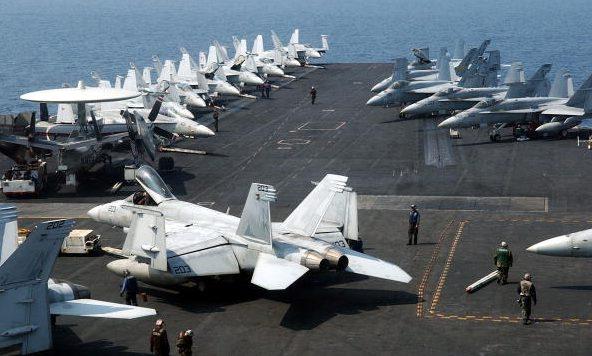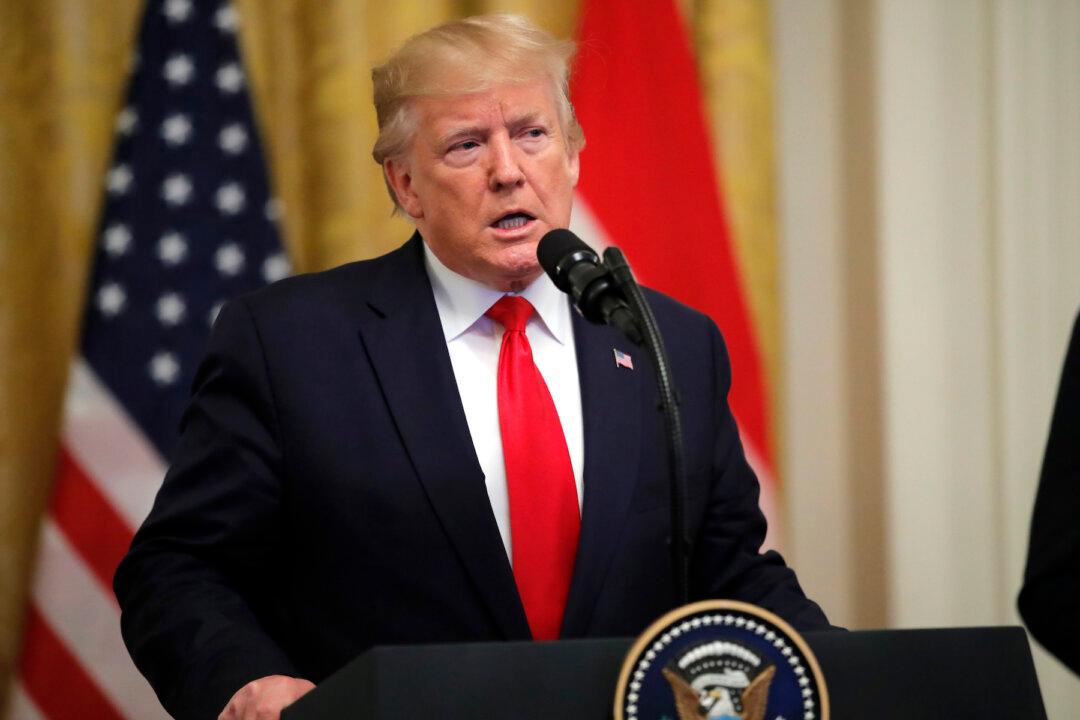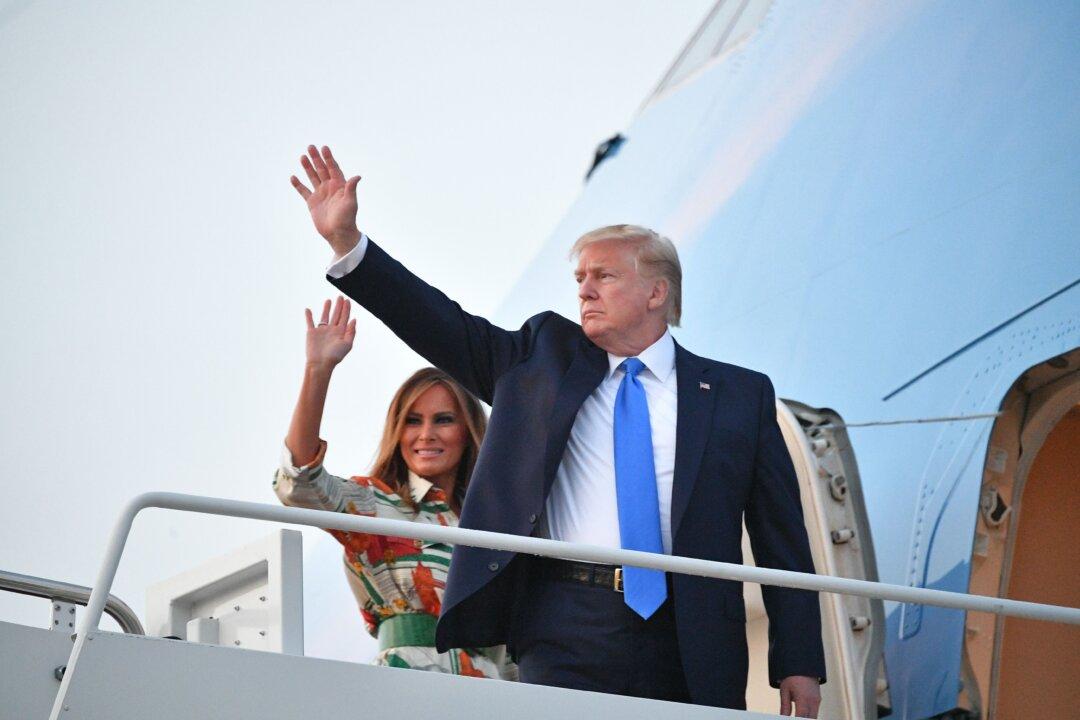Two Russian bomber jets approached the area of the USS Ronald Reagan aircraft carrier on Oct. 29.
The Ronald Reagan was operating in the Sea of Japan at the time. The two nuclear-capable Tupolev Tu-95MS strategic bombers, nicknamed “Bears,” were 80 miles away from the aircraft carrier when they were intercepted by two Japanese jets, according to The Diplomat.





